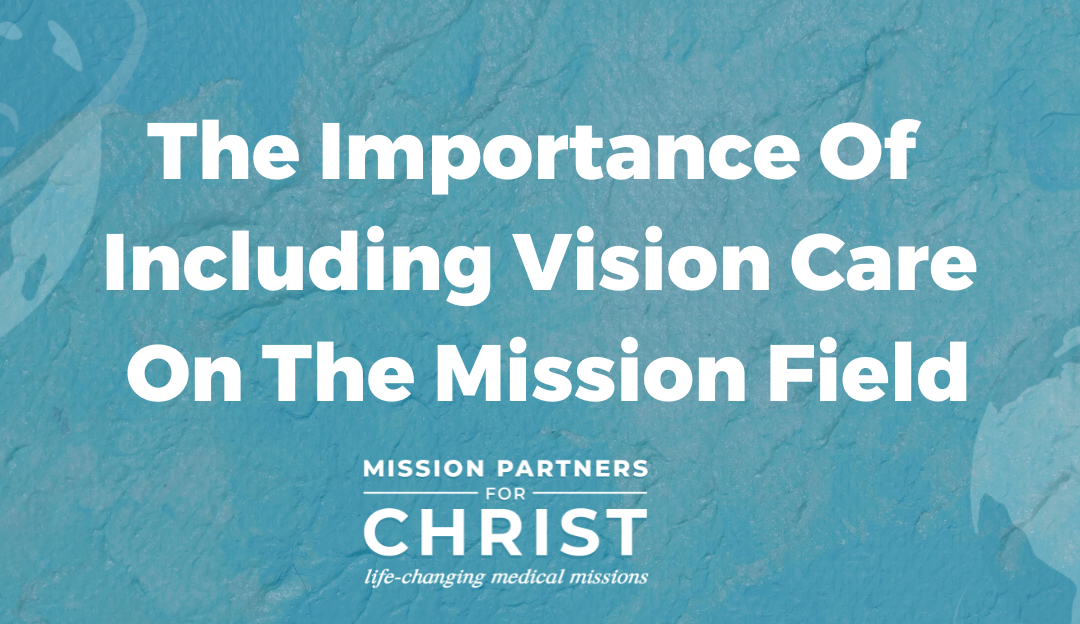If you or someone you know has experience working in optometry, consider joining our medical teams!
It’s important to include vision care on the mission field. When people think about medical mission trips, they often don’t consider the positive impact of proper vision care but there are 285 million cases of blindness in the world. 80% of all cases are avoidable with the proper care and corrective measures ranging from glasses to surgery. Ninety percent of the world’s visually impaired population are in developing countries. Making sight correction a global priority would save millions of lives and create jobs in the communities that need them most. Both of those are a win-win for all involved!
The top vision issues faced in developing communities are uncorrected refractive errors, cataracts, glaucoma, and childhood blindness.
In some cases of cataracts, people are debilitated and can’t see to take care of their basic needs. To find a solution and to improve global eye care also means the creation of more jobs. 47,000 more clinical refractionists are needed. If we take the need for eye care seriously, there will be manufacturing, traveling clinicians, and instructor jobs available that will help the economy and communities in the developing world. For these jobs to exist, there needs to be more educational facilities available to train specialists properly.
Bettering vision will improve work conditions — keeping workers safer and more employable.
But even more valuable than correcting the vision of the people in a community is equipping local medical specialists to take care of their community once the medical mission team is gone.
To understand the impact vision correction can have on a person, here is a testimony from Dr. Jeff Carlsen of Johnson City Eye Center telling about his experience as an eye doctor who attends medical mission trips:
“My most memorable patient was a 17-year-old girl who had cataracts bilaterally, as well as diabetes. She was light perception vision when she came in and could not remember seeing at all, as she had lost her vision around age eight. She was not able to participate in her care, as she was not able to see to give herself insulin injections and was completely incapacitated. She improved from light perception vision in both eyes to 20/30 vision when we left. Having such a profound impact on vision and function in such a young individual is and was exceptionally rewarding. I do remember walking out the first night after a surgery and seeing one of the most beautiful sunsets I have ever seen, seeing her sitting on the curb, and this was a particularly moving experience.”
Correcting someone’s vision gives them their life back.
Not only is it treating the human body, but it is also impacting the human spirit — giving people a new lens to see life in a more positive light!
Are you an eye doctor who is looking for a way to use your skills to further the kingdom of God? Check out our upcoming medical mission trips now!


